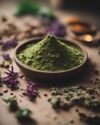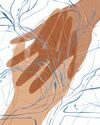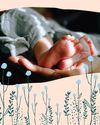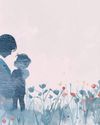
In China, despite warp speed modernization, the age-old practice of the sitting month still flourishes. For one month after birth, the mother stays at home and follows a strict diet and lifestyle that keeps her and the child healthy. In Columbia, something similar is practiced for a period of forty days. In Nigeria, the first bath for the baby is given by the grandmother or an elderly aunt. The ceremonial bath is a much-celebrated milestone. In India, the expectant mother goes to her parents' home where many practices like the ones shared above are followed. Are these practices mere cultural protocols or do they have a greater significance?
Focusing on the Pregnant Mother's Care
While our elders may not have used the word "Epigenetics," they must have understood its influence on a person's health. For example, in Caraka Samhita, an ancient Ayurvedic text, there is a section called "Garbhini Vyakarana," meaning the development of the embryo. It is the palm leaf version of What to Expect When You're Expecting.
In it, there is a verse that reads, "If a cup filled with oil right up to the brim is to be carried without spilling even a single drop, every step has to be taken with care." This verse refers to the care and nurturing needed for an expectant mother during pregnancy.
What's special about this ancient text is it focuses on physiology as much as it does on the environment surrounding the expectant mother. The postconception care as detailed in the texts offers prescriptions for diet (aahara), daily routine and activities (vihara), and medicines (aushada). Everything from recommended foods for each month, types of massages and exercises, air quality, sunlight, moonlight, aromas, and even music for the expectant mother are described. What we would today call epigenetic influences are well documented in the ancient text.
This story is from the May 2023 edition of Heartfulness eMagazine.
Start your 7-day Magzter GOLD free trial to access thousands of curated premium stories, and 9,000+ magazines and newspapers.
Already a subscriber ? Sign In
This story is from the May 2023 edition of Heartfulness eMagazine.
Start your 7-day Magzter GOLD free trial to access thousands of curated premium stories, and 9,000+ magazines and newspapers.
Already a subscriber? Sign In

A Flower from THE HEAVENS
November 14 is Children's Day. This year, SARA BUBBER brings to you a world of forests, magical flowers, festivals, and some animals you may have never seen.

Meeting Phenomenal Women
The author, CHITRA BANERJEE DIVAKARUNI, is interviewed here by TARA KHANDELWAL and MICHELLE D'COSTA about her books on mythology, like The Palace of Illusions, which is a retelling of the Mahabharata from Draupadi's point of view, and The Forest of Enchantments, which is a retelling of the Ramayana, from the eyes of Sita. And there's The Last Queen, which is about Rani Jindan's life.

HERBAL TOOTH POWDERS: Rediscovering Ayurveda's Natural Secrets
SRAVAN BANDA presents a natural herbal tooth powder, offering a holistic approach to oral hygiene, harnessing the power of medicinal herbs.

The Dance of Light and Shadow Lessons from the Dolomites
ALAIN DESVIGNE explores the Dolomites, listed as a UNESCO World Heritage Site in 2009.

FINDING OUR WAY
A Polynesian Explorer's Journey of Discovery

The First Imprint: Understanding PTSD
CHRISTIANNA DEICHMANN is the Director of Education at the Association for Pre and Perinatal Psychology and Health (APPPAH), where she educates both professionals and parents on fostering the most nurturing environments for welcoming new life into the world.

The Tipping Point
In this final conversation of the series, J. FREDERICK ARMENT continues to talk with CHRISTINE JONES about promoting peace in the world.

UNLOCK YOUR POTENTIAL
Take The Brighter Minds Path To Cognitive Development

The Intrinsic Goodness of the Heart
DAAJI shares some thoughts on heartfelt acceptance and all it has to offer. He says, \"It is the heart's intrinsic goodness that allows us to accept everything as part of us.

How Does Fear Affect Our Roles as Mothers? - Neelam Shivhare explores some of the great ancient texts of India on motherhood, compares the behavior of Kaikayi and Yashoda
Neelam Shivhare explores some of the great ancient texts of India on motherhood, compares the behavior of Kaikayi and Yashoda, and realizes the importance of removing fear from our hearts in order to nurture our children.For young women like myself, who are future mothers, I trust we are on the path of becoming selfaware and brutally honest with ourselves. We are creative beings, never forgetting the gifts with which we have been bestowed— the love and tenderness, natural instincts, and intuition to feel the right path. It all lies in the mysterious meanderings of the heart. Are we really listening to our hearts, or confusing the bombarding information on social media with reality?